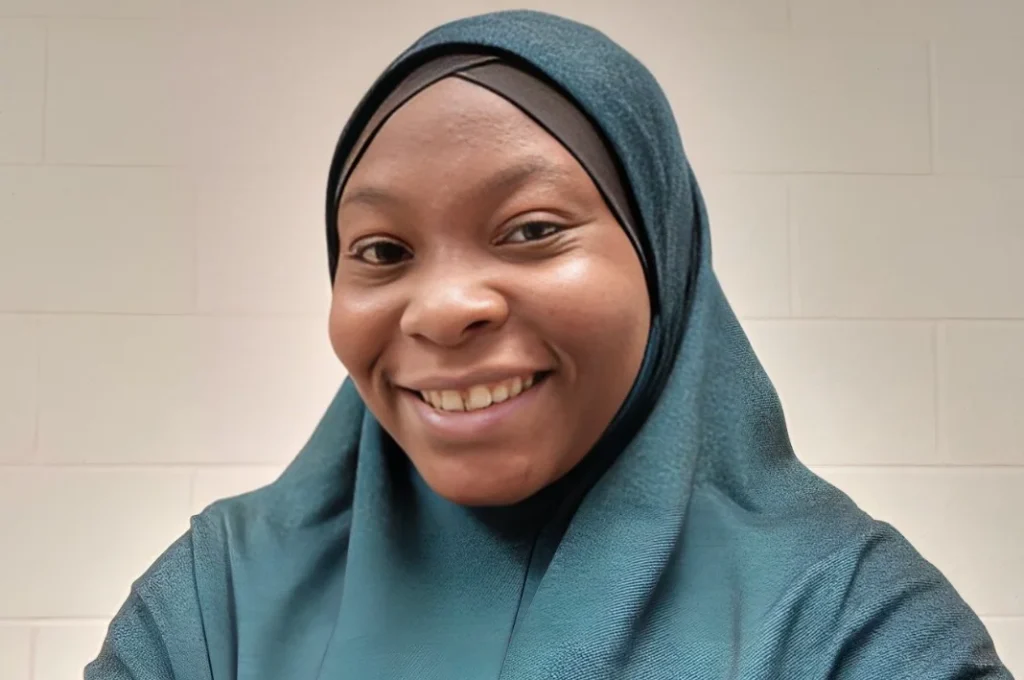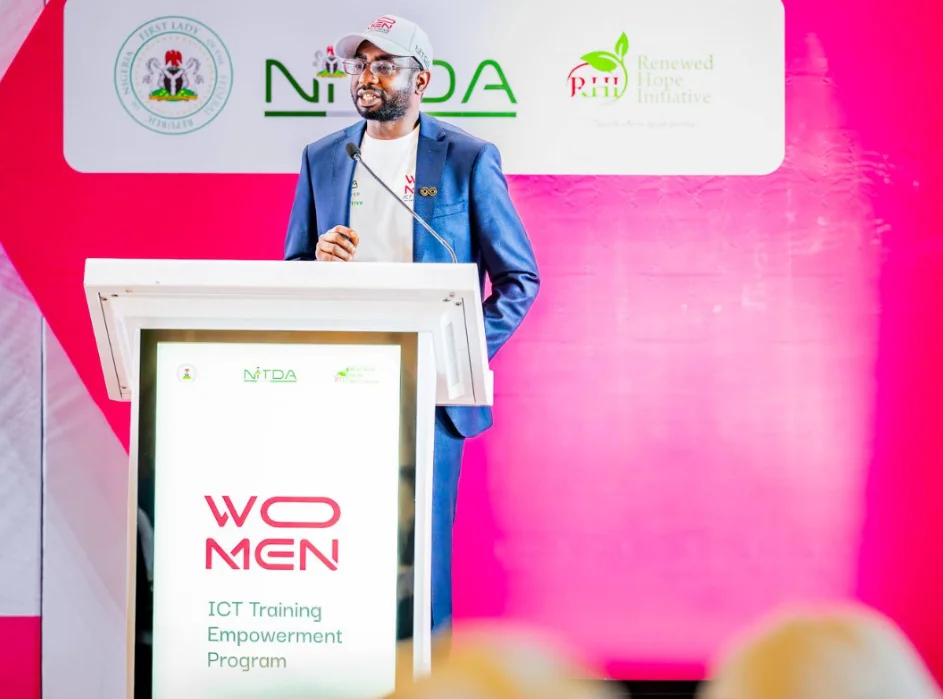The security of artificial intelligence is not just an academic challenge—it is a battlefield. With every breakthrough in machine learning, new vulnerabilities emerge, exposing critical systems to threats that were unimaginable just a few years ago. The question is no longer whether AI will be attacked but how to defend it.
Rukayat Olapojoye, an AI expert, has dedicated her career to answering that question, and she takes us through her journey: “My journey into computer science started 15 years ago during my undergraduate years. I was always fascinated by technology and its ability to solve real-world problems,” she says.
“Cybersecurity, particularly, caught my attention because of its critical importance in today’s digital world. Every day, we hear about data breaches and malicious attacks, and I wanted to be part of the solution.,” she says. Her work explores the vulnerabilities of AI systems and blockchain, focusing on defending federated learning models against AI model poisoning attacks.
Federated learning, a decentralised machine learning approach, allows multiple participants to train a shared model without transferring raw data. While this preserves privacy, it introduces risks.
“AI model poisoning attacks happen when a malicious participant injects corrupted or biased data into the training process. This can compromise the entire model, leading to inaccurate or harmful predictions.
“For example, a poisoned model in healthcare could misdiagnose illnesses, and it could enable fraudulent activities in finance. Because federated learning systems lack centralised oversight, detecting and mitigating these attacks is particularly challenging. That’s where my research comes in,” Rukayat Olapojoye explains.
AI model poisoning has been a growing concern, particularly in high-stakes environments where predictive models influence critical decisions. In cybersecurity, an adversary might manipulate AI models for fraud detection, bypassing security measures and enabling financial crimes.
In national security, an attack on defence-related AI models could have serious consequences. Rukayat’s research directly addresses these threats by enhancing model robustness and introducing detection mechanisms that identify poisoned contributions before they corrupt the system.
Her approach integrates blockchain technology into federated learning frameworks to enhance security and transparency.
“Blockchain is a decentralised and immutable ledger, so it’s ideal for recording every contribution to a federated learning model. By logging all updates onto the blockchain, we create a traceable and auditable record that makes it easier to identify malicious actors,” she explains.
The integration of blockchain into AI security is not without challenges. Traditional blockchain protocols, such as proof-of-work, are computationally intensive and may not be ideal for federated learning environments that require lightweight and efficient mechanisms.
“I’m currently exploring efficient blockchain consensus mechanisms in federated learning environments. Traditional blockchain protocols like proof-of-work are resource-intensive. We need more scalable and energy-efficient alternatives,” Rukayat Olapojoye notes.
Her work considers hybrid approaches that balance security with computational efficiency, ensuring blockchain adoption in federated learning does not introduce excessive latency.
The implications of her research extend beyond academia saying, “The applications are vast. My framework can protect patient data in healthcare while enabling collaborative research on diseases. Imagine hospitals across the globe training a shared diagnostic model without exposing sensitive patient information. My research ensures that such collaborations are both secure and trustworthy.”
Similar principles apply to financial security, fraud detection, autonomous vehicles, and IoT devices.
Securing federated learning models is particularly relevant in sectors like healthcare and finance, where privacy concerns are paramount. The ability to train robust AI models without centralised data storage presents a transformative solution, reducing vulnerabilities while maintaining data sovereignty. Rukayat’s blockchain-integrated approach ensures that organisations can leverage AI without compromising security.
Rukayat’s journey has been shaped by both individual brilliance and collective support. She was a recipient of the 2023 Google Computer Science Research Mentorship Program and the 2022 Women Techsters Fellowship.
“The Women Techsters Fellowship in 2022 gave me confidence in my abilities and strength. It provided me with mentorship, technical training, and a supportive network of women in tech. That experience reminded me of the importance of representation and inspired me to pursue my dreams on a larger scale.“
At Texas Tech University, she has continued to make strides, presenting at international conferences and refining her research through global collaborations.
“In January last year, I presented one of my works, ‘On the analysis of model poisoning attack against blockchain-based federated learning,’ at the IEEE Consumer Communication and Network Conference in Las Vegas, USA.
“Working on your research in isolation is one thing, but sharing it with the world and receiving feedback from other experts is incredibly validating and humbling. The discussions that follow these presentations often lead to new ideas and collaboration.“
Beyond just presenting, her participation in international conferences has positioned her as a thought leader in AI security. These platforms have allowed her to engage with experts in the field, refine her work, and contribute to shaping the global conversation on AI trustworthiness.
With her research being cited in security discussions, Rukayat Olapojoye has demonstrated that emerging threats require not just theoretical solutions but actionable frameworks that organisations can deploy in real-world environments.
Beyond research, she is passionate about mentorship. “As someone who has benefited from mentorship programs, I want to give back and inspire the next generation of researchers.“
Her involvement in mentoring women in technology highlights the importance of representation and diversity in cybersecurity. She understands firsthand the challenges that underrepresented groups face in STEM fields and actively works to create opportunities for others.
Her advice to young professionals reflects the philosophy that has guided her journey: “Never stop learning and stay curious. The tech landscape is constantly evolving, and staying adaptable is crucial. Also, don’t let challenges define you. If I’ve learned anything from my journey, resilience and determination can take you far. Surround yourself with people who believe in you; don’t be afraid to dream big.”
Her next steps are as ambitious as the work she has already accomplished.
Quantum computing poses one of the biggest future challenges in cybersecurity. The cryptographic foundations securing blockchain networks may become obsolete once quantum computers reach practical usability.
Rukayat Olapojoye’s research into quantum-resistant cryptography ensures that AI models and blockchain security frameworks remain resilient in a post-quantum world. Her proactive approach places her at the forefront of anticipating and mitigating the next generation of cyber threats.
“There’s still so much to explore! I’m currently looking into integrating quantum-resistant cryptography into blockchain systems to prepare for the potential rise of quantum computing. I’m also exploring ways to make federated learning more accessible to smaller organizations that may not have the resources of large corporations.”
Rukayat Olapojoye’s work underscores a fundamental truth about the digital age: innovation must be secured as much as it is advanced. The threats facing AI and blockchain are evolving, but with researchers like her leading the charge, the future of decentralised systems looks brighter.
















